This 5 centre driving tour of Ireland is perfect for the traveller who prefers to explore the countryside from a number of bases rather than switch accommodations every night or two.
This tour can be accessed from any of Ireland's International airports although ideally entering and departing via Dublin would be the easiest option.
The tour will allow the customer a greater amount of time to get to know the areas in which they are residing and of course the locals that reside in those locations. One of the greatest advantages of the 5 Centre Tour is that you will undoubtedly feel considerably more rested at the end of the tour than someone who has taken the alternative 8 day tour where they stay in each location for just one or two nights.
Your first journey will depend on your airport of arrival, whether it be Dublin, Shannon or Cork. For this itinerary, we will be using Dublin airport as the starting point. This 14 night tour will enable you to visit Ireland’s most famous sights including Trinity College and Kilmainham Gaol in Dublin, Powerscourt House & the Waterford Crystal Factory in the South East, Blarney Castle and the Cobh Heritage Centre in Cork, Killarney and the Dingle Peninsula in County Kerry, the Cliffs of Moher and the ‘Burren Landscape’ of County Clare and Galway Bay and the Aran Islands in the west of Ireland. From there travel north to County Donegal via Sligo (or Yeats County) and into Derry in Northern Ireland to visit the wondrous Giants Causeway back towards Dublin and on route you may wish to visit Ireland's most popular attraction, the ancient Megalithic Tombs at Newgrange, just 45 minutes north of Dublin.
This tour will leave the traveller with a wonderful array of memories of the diverse scenery and cultural differences that they will encounter from one side of the country to the other. While the accents and dialects of the spoken word will vary greatly while journeying from County Dublin in the east of Ireland to the western counties of Cork, Kerry and Clare, the one unchanging constant will be the level of friendliness, humour & welcome that you receive throughout your travels.
What's included
Tour Highlights
See ItineraryOvernights for this tour
Accommodation Options
Rest easy - handpicked stays for your style and budget
Tour itinerary
Day 1 - Dublin to Kilkenny

After collecting your rental car your first stop is the National Stud and Japanese Gardens where a Horse Museum tracing the history of the horse in Ireland using artifacts, illustrations and text is located. In fact the winner of the 2003 Californian ‘Breeders Cup Mile’ race is a National Stud horse, the 3rd in the last 9 years. The Japanese Gardens are situated in the grounds of the Stud Farm and were created between 1906 and 1910. They are planned to symbolise the 'Life of Man' from the cradle to the grave. On to Kilkenny - Long renowned as Ireland’s Medieval Capital, the city’s origins date back more than 1,500 years. Characterized by beautifully restored old buildings, Kilkenny City is small and compact enough to explore on foot, yet full of fascinating, historical buildings. Kilkenny Castle is a 12th century castle remodelled in Victorian times and set in extensive parklands. Also in Kilkenny is Saint Canice's Cathedral, the second longest of Ireland's medieval cathedrals. Built on the site of an earlier church, the major portion of the work that produced the beautiful Gothic structure was carried out in the middle of the 13th Century. Also well worth a visit is the Smithwick’s Brewery Tour in the centre of the city.
Day 2 - Kilkenny Sightseeing & Further Afield

Today, you have a number of sightseeing options. The South Eastern corner of Ireland is an option to visit the ancestral home of the Kennedy’s in Wexford at the Kennedy Homestead as well as visiting the Dunbrody Famine Ship which is one of the top tourist attraction in the South East of Ireland. This exhibition is extremely interactive and it re-enacts life on the Dunbrody as she carried her passengers from New Ross to the US and Canada 150 years ago. Continue down the east coast and you will enter the area known as ‘Sunny South East’ where you will visit the interpretive centre for Waterford Crystal that has been opened since the closure of the famed Crystal Factory. There is also the option to discover and experience the Monastic settlement and ruins at Glendalough as well as the beautiful Powerscourt House and Gardens and the Avoca Woollen Mills in the Vale of Avoca, all of which are situated in the garden county of Ireland, County Wicklow.
Day 3 - Kilkenny and Further Afield

There are some excellent day trip options from Kilkenny and are all within easy reach and offers excellent discovery options to find out more about Ireland. These include a trip to The Rock of Cashel and Cahir Castle in the neighbouring County of Tipperary. Cashel is best known for the imposing Rock of Cashel and the site encompasses a Gothic cathedral, a 15th century castle and a round tower. St Patrick is known to have preached on the rock as well as the Kings of Ireland and Munster came to the Rock of Cashel. It was an important stronghold of the powerful Butler family and is one of Ireland’s largest and best-preserved castles.
Waterford is another tour option where you will see the Waterford Crystal factory. If you decide to explore the South East Coast as an alternative; a visit to the county of Wexford is a must. Some attractions here are the Irish National Heritage Park, the 13th Century Tintern Abbey, Hook Lighthouse, Dunbrody Abbey, the Kennedy Homestead, ancestral home of JFK and finally the Dunbrody Famine Ship. This is centered on the authentic remake of the 1840’s emigrant vessel with its world class interpretation of the emigrant experience during the famine. The original Dunbrody was a three-masted barque built in Quebec, Canada, for the Graves family of New Ross, Co. Wexford in 1845.
Day 4 - Kilkenny to Killarney

Your first stop today, if you didn’t visit it whilst staying Kilkenny, is the Rock of Cashel in County Tipperary. Cashel was once the seat of the Kings of Munster and capital of this southern province. Kings of Ireland as well as Munster came to this spot and St. Patrick is known to have preached on the rock and converted the local King, Aenghus, here in the 5th Century. Just 10 miles further on stop is Cahir Castle, once an important stronghold of the powerful Butler family and is one of the largest castles in Ireland and is regarded as one of the best-preserved castles. The castle offers guided tours and audiovisual shows. As you continue to Killarney and want to detour the main M8 route to Cork, you can detour to Blarney Castle. Blarney Castle is one of the most popular places in Ireland and it is a great site to explore the gardens and climb the steps and kiss the stone that will bestow you the ‘gift of the gab’. Onwards to Killarney, an extremely vibrant town surrounded by countryside and the Killarney National Park. There are many walks and trails around Killarney. You will also have a chance to visit Ross Castle, the Gap of Dunloe or simply take a stroll through the streets of this quaint town to enjoy the great pubs and enjoy the traditional Irish music on offer
Day 5 - Killarney Sightseeing & Ring of Kerry

On everyone’s bucket list while in Killarney is to discover the Ring of Kerry through a driving tour. The Ring of Kerry is a journey through some of the country’s most outstanding scenery around the Iveragh Peninsula. Stunning mountain and coastal scenery combined with colourful towns and villages will make this one of the highlights of your tour. For those who wish to take a break from driving we can arrange a bus tour through this route. Following the peninsula drive, you then arrive at Muckross House. Muckross House is a magnificent Victorian mansion completed in 1843 for Henry Arthur Herbert. The location of the House is spectacular, close to the eastern shore of Muckross Lake and set beneath the impressive backdrop of Torc and Mangerton Mountains.
Day 6 - Killarney Sightseeing & Dingle Peninsula

The Dingle Peninsula has more interesting historic sites and varied mountain scenery than any other part of Ireland. Some of the scenery includes sandy beaches and craggy cliffs and further inland you will see rolling hills and mountains including 952m Mount Brandon (second highest mountain in Ireland). The main town Dingle is the most westerly in Europe and attracts large numbers of visitors each year, many of whom come to learn the Irish language in the surrounding Irish speaking district. Also in the area are An Dún Beag Promontory Fort from 800 BC as well as the Blasket Islands and Gallarus Oratory. Gallarus Oratory was built between the seventh and eighth century and is the best preserved early Christian church in Ireland. On to Brandon Creek from where legend has it that St. Brendan discovered the North American continent in the 6th century. If you wish to stay closer to Killarney, take a wonderful walk or pony and trap through the Gap of Dunloe and the Black Valley, returning to Killarney by boat across the Lakes of Killarney.
Day 7 - Killarney to Galway

One of your longest but most dramatic days of your tour brings you from Killarney along the west coast to Galway City, Ireland’s festival capital. First stop will be the Village of Adare in County Limerick. Adare is regarded by many a seasoned traveller as Ireland’s prettiest village with its charming thatched cottages, manicured public park and ancient church. From Adare continue along the N20 towards Limerick City of ‘Angelas Ashes’ fame and home to King Johns Castle. Shortly after this, you arrive at Bunratty Castle. Built in 1425, this majestic castle was restored in 1954 to its former medieval splendour. Within the grounds of the Castle is Bunratty Folk Park where 19th century Irish life is vividly recreated. Continuing on to the magnificent ‘Cliffs of Moher’. The majestic Cliffs of Moher are without doubt one of Ireland’s most spectacular sights and overlook the Atlantic Ocean on the coast of West Clare. You then arrive at the village of Doolin. Doolin is world-famous for its wealth of Irish folk music and in recent years has been attracting crowds to spontaneous sessions in any one of its excellent pubs. Then it’s on to Galway via the lunar like Burren Region and the ancient Poulnabrone Dolmen Tombs.
Day 8 - Galway Sightseeing & Connemara or Aran Islands

The hauntingly beautiful Connemara Region awaits you. Just west of Galway, situated on the most western seaboard of Europe, this unspoilt region boasts breathtaking scenery. The characteristic features of Connemara include its rugged, unpolluted coastline, dramatic mountains, numerous lakes and rivers and woodlands and the renowned Connemara National Park. Visit Kylemore Abbey and the Lough Inagh Valley as well as the spectacular Sky Road near the town of Clifden. You can also visit the fishing village of Roundstone and see how a ‘Bodhran’ (traditional Irish Drum) is made. Alternatively, you may prefer to take the ferry to the Aran Islands. Aran will take you back to an Ireland of Celts and Early Christians. Take a pony and trap, or a guided tour from the pier up the island to the stone fort of Dun Aengus. Dún Aengus is located on top of a 300ft high sea cliff and is one of the finest prehistoric monuments in Western Europe. This evening, back to the Quays area of the city for some of the best traditional entertainment in the country.
Day 9 - Galway to Donegal

The most direct route to Donegal will have a driving time of less than 4 hours. On route to Donegal you will travel by Ireland’s most visited pilgrimage location, the Shrine at Knock. Shortly after this, you can take a slight detour to the Coleman Irish Music Centre is a celebration of Irish Music, Culture and Heritage as expressed in the South Sligo style of music played by Michael Coleman and other musicians of his time. Southwest of Sligo Town you will find the Ancient Tombs of Carrowmore. Over 60 tombs have been located by archaeologists to date. Dating back to nearly 5,000 B.C. and centuries older than the Pyramids of Egypt, Carrowmore is Ireland’s largest megalithic cemetery and is considered to be one of the most important in Europe. Shortly after leaving Sligo on route to County Donegal you will arrive at Drumcliff Churchyard, perhaps the most visited graveyard in Ireland. William Butler Yeats is buried here under the epitaph that he penned, “Cast a Cold Eye on Life, on Death. Horsemen, pass by!”. The Churchyard stands in the shadow of the magnificent Benbulben. Continue north until you reach Belleek home to Belleek Pottery, where there is an excellent visitor centre that is open from April to October. Set up in 1857, the factory is famous worldwide for its ornate fine Parian China. Other major touring attractions in Donegal include the Railway Heritage Centre, Donegal castle and Donegal Craft Village in Donegal town. Heading west from Donegal Town, on the edge of the Atlantic is Ireland’s premier fishing port of Killybegs. Nearby are the magnificent Slieve League Cliffs which at over 1,000 ft. (300 meters) the cliffs are the highest marine cliffs in Europe. Next stop along this route is the Gaelic speaking village of Glencolmcille where you can take the opportunity to relive local rural life as experienced in 18th, 19th and 20th century Ireland.
Day 10 - Donegal Sightseeing

There are a number of other options available to you today including the ancient territory of the Inishowen Peninsula is the most northerly part of Ireland. Monuments of an earlier age seem to grow from the landscape as castles, towers and ancient churches shimmer in the sunshine. Your tour begins at Grianan an Aileach, the ancient Temple of the Sun that was Christianized by St. Patrick. Founded by the Druids, this ring fort dates back to some 2,000 years B.C. The panoramic view from the walls of this ancient palace is truly magnificent; seven counties can be seen on a clear day. Onwards north to Buncrana and the Tullyarvan Mill - a tastefully restored corn mill dating from the 19th century, today developed as a local craft centre and tourist amenity. From Buncrana to Dunree Head and Fort Dunree, constructed in 1798 by the English as a defensive measure against Napoleonic invasion. At the top of the Inishowen Peninsula is Ireland’s most northerly point, Malin Head. It is not just Ireland’s most northerly point, but also an area of great scenic beauty and of historical, scientific and ecological importance. The area is steeped in history and folklore. Continuing around the peninsula, you arrive at the pretty village of Culduff with its stone circle. Deep in the heart of County Donegal is Glenveagh National Park and is considered by many to be Ireland's finest national park. At the core of the park is the Glenveagh Estate, originally the home of the notorious landlord John George Adair, much despised for his eviction of Irish tenant farmers in the 1860s.
Day 11 - Donegal & Further Afield

For a day trip from Donegal today you may wish to visit the walled city of Derry. Heading to the south of the county, you will find the magnificent Slieve League Cliffs. At over 1,000 ft. (300 meters) the cliffs are the highest marine cliffs in Europe. You will find touring around the city of Derry to be a multi-layered experience that takes in all periods of its tumultuous history and vibrant present. The fortified walls of the city are among the best-preserved city fortifications in the Western World. They rise to a height of 26ft (8m) and in places are 30ft (9m) wide. Completed in 1618 to defend the Plantation City, the walls have never been breached in three major sieges - even during the 105-day siege of 1689 when 7,000 of the 30,000 population died of starvation. After a day exploring the city and its surrounding areas, you can return to Donegal for a good night’s rest!
Day 12 - Donegal to Dublin & Dublin Sightseeing

Today you will be travelling to Dublin. With an early start to the day, you may wish to visit one of Ireland’s most visited ancient sites, the Megalithic Tombs at Newgrange, just north of Dublin. Well worth a visit, this site predates the Pyramids of Egypt. The quandary that you will be faced with when you reach Dublin is, not what you should see but that you should leave out. Knee-deep in history and with its own unique sense of humour and wit, Dublin is an invigorating city. Take the opportunity to visit some of Ireland’s most history laden locations, including Trinity College and the Book of Kells, Dublin Castle, Kilmainham Gaol, The National History Museum and not forgetting The Guinness Brewery, St. Patrick’s Cathedral & why not finish up the day in Dublin’s Temple Bar section and enjoy the wonderful pubs and music it is famous for.
Day 13 - Dublin Sightseeing

Continue your sightseeing in Dublin today visiting the many historical and modern attractions that this cosmopolitan city has to offer. Other attractions include Christchurch Cathedral which was founded in the year 1030 by Sitric, King of the Dublin Norsemen, the James Joyce Centre & the Dublin Writers Museum. Of course, you may wish to take time out to shop in Grafton Street or any one of a number of narrow and quaint streets that the café strewn city centre has to offer. The Dublin Hop on Hop off Bus is an excellent way of visiting many of Dublin’s most historic locations. This evening, why not spend some time in the Temple Bar area. This small area boasts a dazzling choice of restaurants, cafes, bars and shops to suit all tastes and pockets, all within easy walking distance of Temple Bar's many cultural centres and galleries. Its narrow, cobbled streets are pedestrianised and are ideally suited to a leisurely stroll through the quarter. There is also the opportunity to experience an evening’s entertainment at any one of a number of excellent traditional Irish shows. If you are interested in sports, you can take a museum tour of Croke Park – Ireland’s National Stadium for Gaelic Football and Hurling or Aviva Stadium home to soccer or rugby. This is a selection of attractions in Dublin. View your detailed travel itinerary for a full list of Dublin amenities.
Day 14 - More Dublin Sightseeing

Dublin has remained one of Europe's most intimate capitals boasting elegant shops, hotels, galleries, coffeehouses and a stunning variety of excellent restaurants. While you will undoubtedly be struck by the fact that more than half of the capital's population is aged under 25, it is still the Georgian elegance of Merrion Square, the magnificence of Christchurch Cathedral and the old-style atmospheric pubs that will enchant you. Dublin city centre is a compact area, with all points of interest being easily accessible on foot. As a result, you will find a large number of walking tours available, the most popular of which include the “Historical Walking Tour” and the “Literary Pub Crawl”. You may of course wish to visit many of the sights in your own time. To that end, we are happy to provide you with a detailed map of Dublin, complete with a number of suggested walking tours. All landmarks, museums, etc. are clearly marked on the map, including a short description of each. Places worth visiting include: Trinity College, the National Museum of Ireland, Kilmainham Gaol, and Dublin Castle, the Guinness Storehouse, the Old Jameson Distillery, the Dublin Writers Museum and many more. Also worth a visit is EPIC, the Irish emigration museum and the GPO (General Post Office) which houses the ‘GPO Witness History’ visitor attraction. This exhibition tells the story of the 1916 rising and the aftermath of this historic rebellion.
Route map


Tour attractions
Tour Prices
Below, you will find a price for this self drive tour including your car rental. Pricing for other accommodation and transport options is also available upon request. Please also note that all of our driving tours itineraries and sightseeing guides are available to those wishing to avail of one of our experienced driver guides.
ACCOMMODATION WITH CAR RENTAL PRICING
| Accommodation Type | B&B's | 3* Hotels | 4*Hotels & Manor Houses | Combination |
|---|---|---|---|---|
| Jan-Mar & Nov-Dec | €1,985 | €2,190 | €2,980 | €2,390 |
| April & October | €1,985 | €2,490 | €3,277 | €2,690 |
| May-June | €2,240 | €2,690 | €3,744 | €2,983 |
| July -September | €2,490 | €2,890 | €3,951 | €3,190 |
Notes
- Please note prices are per person based on 2 persons in each room with full Irish breakfast and taxes included.
- The Combination package includes 5 Nights in 3*** Hotels, 6 nights in Luxury Manor House Hotels & 3 Nights in our hand-picked B&B's.
- Children Sharing with 2 adults (aged 2-11) pay 40% of the Adult option.
- Children under the age of 2 are free when sharing with 2 Adults.
- Your Accommodation & Car Rental Package rate includes an Economy class car eg., Opel Corsa or Fiat Punto.
- Included with your car is all compulsory insurances - Collision Damage Waiver insurance (CDW with an excess/deductible), theft protection insurance, location fee of €30, Road fund tax, sales tax at 13.5%, unlimited free mileage, third party liability insurance, 24 hour peace of mind break down cover.
Private Chauffeur Option Available For This Tour
- Enjoy the services of an experienced and friendly driver guide
- Luxury vehicles so you get to travel in style and comfort
- Take the stress out of driving on unfamiliar and sometime narrow roads
- With our knowledgeable drivers you see more in less time
- You get to see the scenery instead of worrying about crashing into it!
- Contact Us for a price quotation today
Prices in other currencies are indicative only. Please note that we charge in Euro.

Detailed Enquiry Form
Please enter your vacation requirements in the form below. If your enquiry requires a more immediate response, please use the Tollfree & International numbers as listed down the page.
For customers based in North America, please note that as we are based in Ireland, we are 5 hours ahead of EST.






























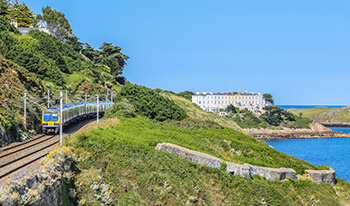
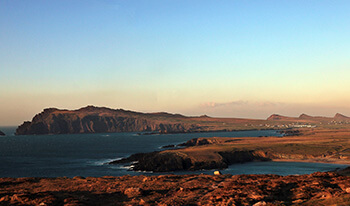
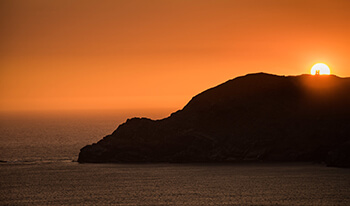
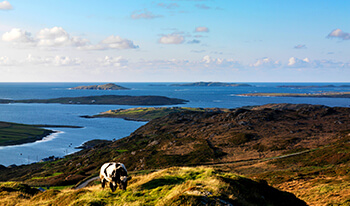
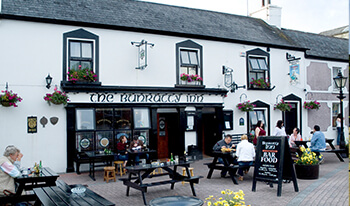
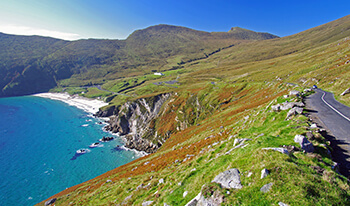




-V3.png)

